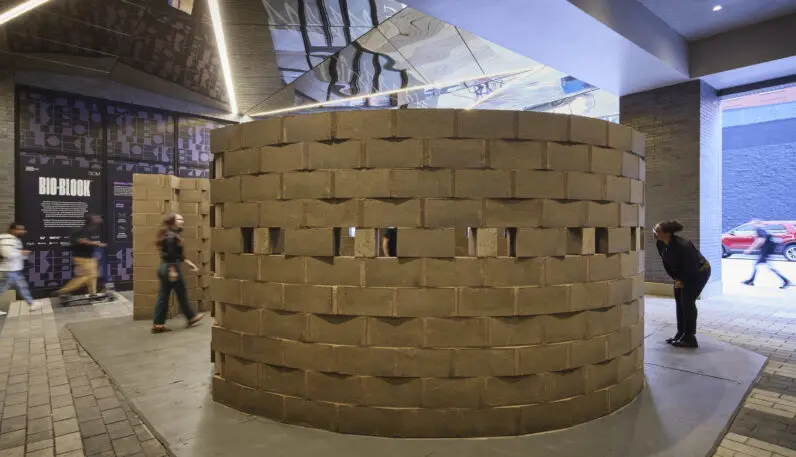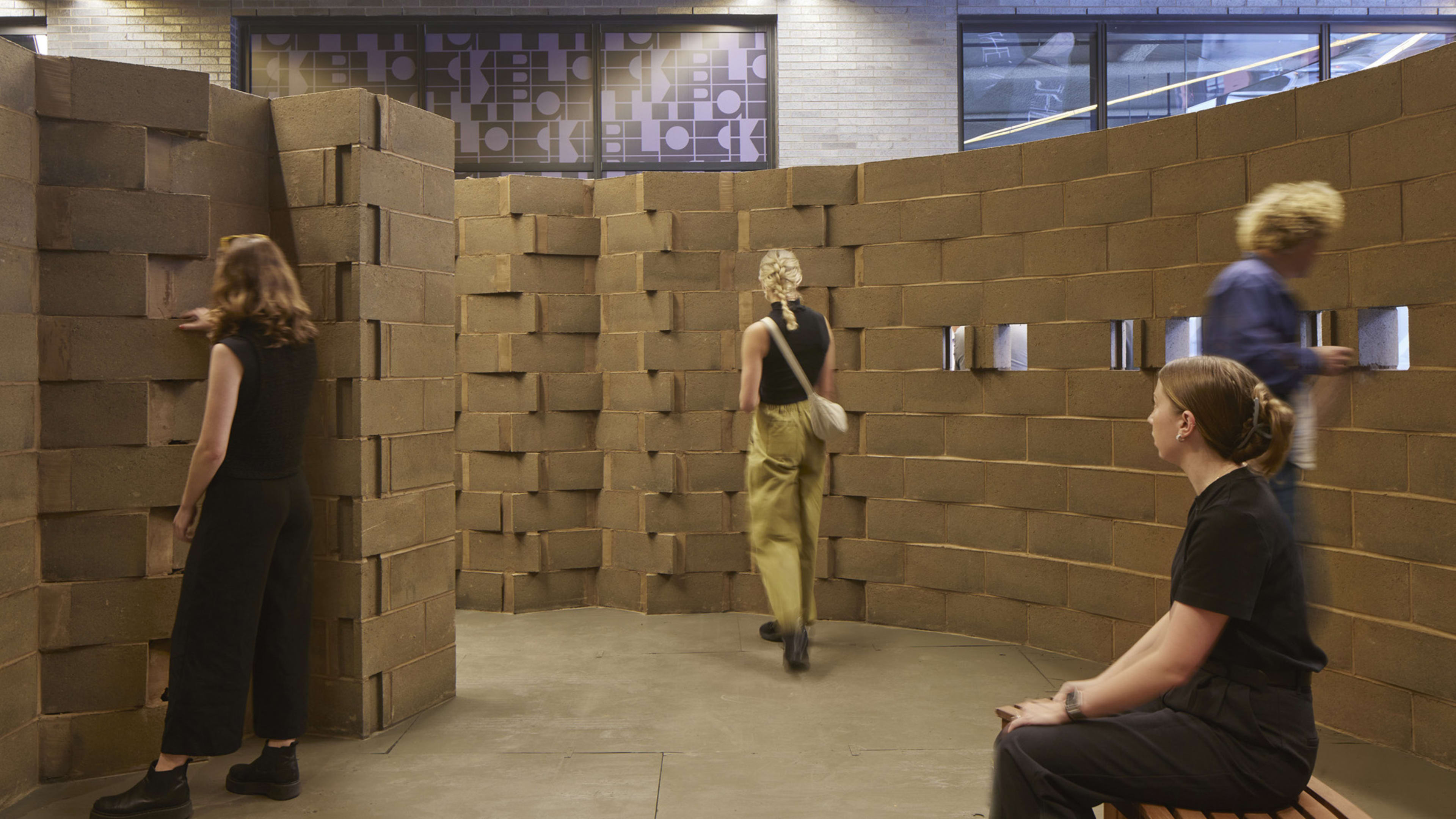The Bio-Block Spiral is a small, short wall, but it may be a bulwark against a giant threat: climate change. The curved, mud-colored structure is part of the current Chicago Architecture Biennial, entitled “Rehearsing the Future.” Unlike the artists’ installations filling the city’s downtown exhibit halls, the Bio-Block Spiral rises as a tight 15-foot-tall circle of concrete blocks outside the entrance to an office building that’s away from the action. Perhaps that’s because the wall’s chief creators aren’t artists. They’re bacteria. More specifically, cyanobacteria, aka blue-green algae, aka pond scum.
The cyanobacteria has been cultivated, with the help of clever biotechnology, to make biocement. The gooey material is a carbon-absorbing alternative to Portland cement, the binder currently used to make nearly all of the world’s concrete. Portland cement is churned out from limestone fed into giant, fiery, fossil-fuel-hungry, carbon-spewing chemical plants and is the source of around 8 percent of the world’s climate-warming CO2 emissions.
The biocement that binds together the sand and stone in the concrete used in the Bio-Block Spiral, in contrast, is expressed by the cyanobacteria, which is farmed, like a tiny crop. Because cyanobacteria live and grow through photosynthesis, they absorb carbon rather than emit it. Concrete made with biocement instead of Portland cement flips it from climate toxin to climate tonic.

Though the Bio-Block Spiral exists to demonstrate a material, standing in its arc can feel surprisingly spiritual. I first saw the wall in pieces. In late August, I traveled from my Chicago home to the headquarters and skunk works of Prometheus Materials, a biotechnology startup outside Boulder. Prometheus is commercializing the biocement used in the wall, not the blocks nor the concrete. The company grew out of a research collaboration at University of Colorado between biochemistry and civil engineering labs developing low-carbon building materials from living organisms.
Recognize your brand’s excellence by applying to this year’s Brands That Matter Awards before the extended deadline, June 14.
Sign up for Brands That Matter notifications here.
